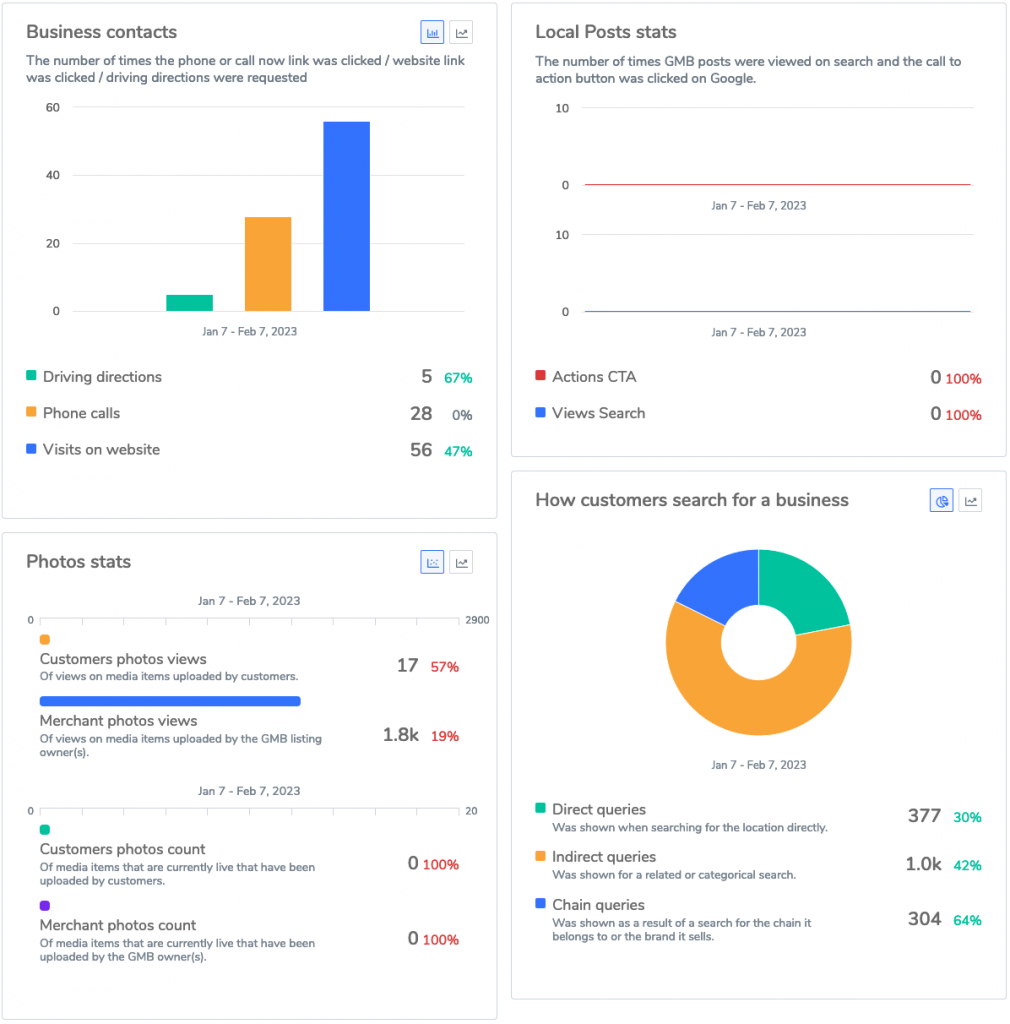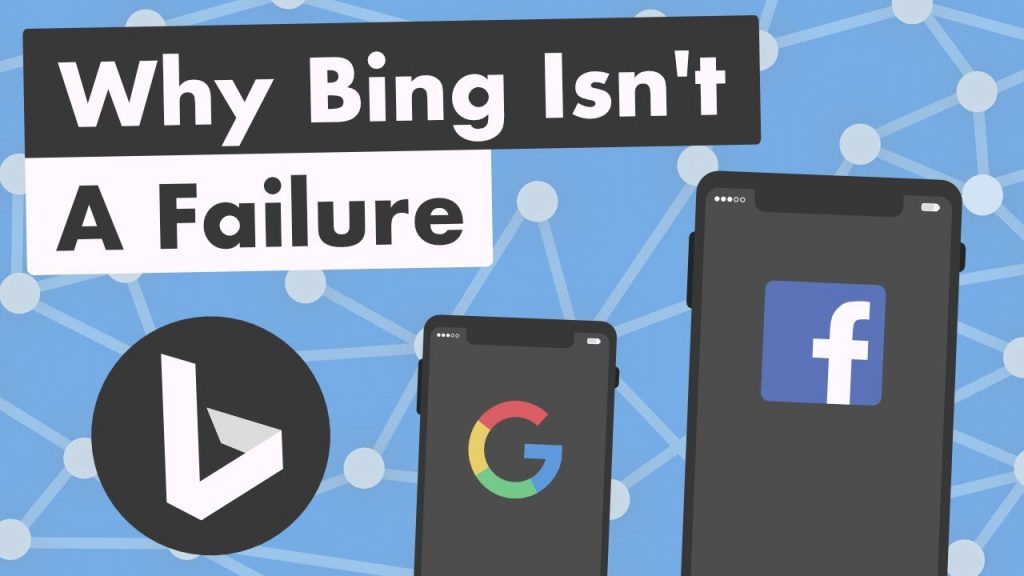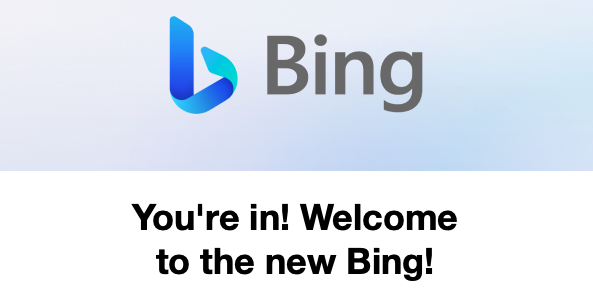Greetings, everybody. Today’s newsletter is long and has a greater level of detail than we usually give you. This week’s news kinda demands that. Microsoft made search interesting for the first time in 20 years a few days ago. We’ll get into that as soon as we remind you about our ongoing AMA series and let you know about some changes that Google is making to GBP metrics.
The next talk with Nate, our CTO, will be on Wednesday, February 15 at 2 PM EST. Nate will explain how to install the WordPress plugin for our GeoBooster mobile app and then open the floor for anyone to ask questions about local SEO, marketing, or any of our software platforms. This is a great chance to familiarize yourself with GeoBooster if you haven’t yet had a chance to. You can register here.

The Google news to fill you in on has to do with them forcing an API migration. A number of Local Viking users have contacted our support after receiving an email about this, asking if they need to do anything to keep their accounts functional. The answer is no. We’re taking care of everything on our side. It’s frankly a huge pain, but this is the kind of thing you pay us for.
This background API changeover will affect the statistical data associated with all GBP locations. Google will no longer keep track of about half the metrics they’ve reported up until now. They’ll be renaming some of the others. This will impact all Local Viking and Local Brand Manager users when they click into any location’s dashboard (a portion of one can be seen above). We will be renaming some of the bar graphs and pie charts to correspond with Google’s new labels and eliminating the data that came from the metrics they’re deprecating.
Now, on to the bigger news. You’ve all obviously already heard that Microsoft integrated a custom version of ChatGPT into its Bing search engine and Edge browser on Tuesday. Neither are widely-available yet, but we were able to skip to the front of the early access line by creating a Microsoft account, downloading the Edge mobile browser, and setting our system defaults to Microsoft products (resulting in an unconventional Apple Computer experience).
It was worth jumping through those hoops. We were granted access to the souped up Bing search on Wednesday. You can join the waitlist from this page if you’d like to do the same. Microsoft said it plans to grant “millions of people” preview access over the next few weeks.
Understanding Microsoft’s revamped foray into online search requires some context. Google dominates that space in most of the world and currently makes more money than ever from online advertising. Despite that, plenty of indications make it clear that some people have been growing dissatisfied with Google’s search results for years now. On a very basic level, Google has incentives that are at odds with its users– the more bad results someone sees, the more often they need to click back to the search results page and get ads flashed in front of them. This is a situation that is only tenable when you’re dealing with a monopoly.
There are many reasons why certain crowds are moving away from Google Search, but three big ones. The first is that SEO is now so well understood that unhelpful websites stuffed with optimal keywords drown out the pertinent information that users are looking for. Secondly, young people turn to TikTok and other multimedia-heavy sources (like SWURL) for search because Google’s text-heavy, links-on-a-page approach seems dated to them. The third reason is that so much online content now resides on large platforms like Instagram, LinkedIn, and Facebook; these platforms are hostile to Google Search and present information-seekers with login screens instead of the websites they’re looking for.
Taking a deeper dive into Google’s growing unpopularity with tech influencers and early adopters would triple the word count of today’s already-long newsletter. We strongly recommend watching a 14 minute YouTube video called What Happened to Google Search? by Enrico Tartarotti if you’d like a comprehensive breakdown. Turn on subtitles if his Italian accent gives you any trouble. If you find that video interesting, move on to an essay from last February called Google Search is Dying. Discussion about it resulted in the most active Hacker News thread of all time.
Alphabet executives are keenly aware of Google Search’s perceived shortcomings. We’ve mentioned their alarmed reactions to ChatGPT several times over the past few months. What’s giving them existential dread nowadays is the fact that ChatGPT is undeniably better at many of the things people currently use Google Search for, and Microsoft, extending its smartest-dealings-in-the-history-of-business track record, has exclusive rights to it (and every other OpenAI product).
Microsoft gave an awe-inspiring presentation of Bing’s new capabilities on Tuesday. They painted a picture of the internet broken up into three eras. Servers and computers reigned during the first one. The second era lives in the cloud and is mostly consumed by mobile devices. Microsoft now plans to usher in a third era that will be saturated with AI.
Google scrambled to respond to Microsoft’s shot across the bow with their own presentation on Wednesday. They fumbled. One of the speakers was unable to give a live demonstration of Google’s competing AI, BARD, because she couldn’t find her phone while on stage. A promotional video released earlier that day showed BARD incorrectly answering a question. Wall Street reacted to the clearly-rushed media event by lopping $100 billion off of Alphabet’s market capitalization.
In fairness, despite the fact that ChatGPT can (barely) pass the bar and medical examinations, it definitely serves up inaccurate information sometimes. The new Bing search is powered by a version of ChatGPT that is far more capable than the standard one, but it will inevitably make mistakes when it starts handling millions or billions of queries per day. Still, though, OpenAI and Microsoft have never showcased one of ChatGPT’s failures in their marketing material.
Something worth mentioning is that Google Search in its current form is probably safer than the new Bing, at least from a legal or moral perspective. Google presents users with search results without vouching for their accuracy. ChatGPT can be asked for opinions. It has protections in place to steer it away from controversy, but its guardrails can be hopped over by phrasing prompts in ways that OpenAI didn’t anticipate. Developers have already created tools that disable ChatGPT’s risk-averse demeanor and open the floodgates for all kinds of vulgar outputs.
 For those of you who are unaware, Microsoft has been down that road. They released an A.I. chatbot in 2016. They named it Tay, and she was supposed to be a 19-year-old girl. Microsoft programmed Tay to evolve as she interacted with the public. The project lasted 16 hours. In that time, 4chan users managed to dominate Tay’s interactions so thoroughly that her personality warped into talking about suicide and praising a former German head of state whose name is now the universal placeholder for evil. Microsoft later reintroduced Tay with new safeguards in place, but the same thing happened again.
For those of you who are unaware, Microsoft has been down that road. They released an A.I. chatbot in 2016. They named it Tay, and she was supposed to be a 19-year-old girl. Microsoft programmed Tay to evolve as she interacted with the public. The project lasted 16 hours. In that time, 4chan users managed to dominate Tay’s interactions so thoroughly that her personality warped into talking about suicide and praising a former German head of state whose name is now the universal placeholder for evil. Microsoft later reintroduced Tay with new safeguards in place, but the same thing happened again.
It’s hard to imagine a world where Microsoft didn’t learn some lessons from that experience. It’s almost a certainty that the same group of people who corrupted Tay will get back up to the same antics as soon as they can. If there is a way to sabotage the new Bing search, they will find it. We hope that such an outcome is now impossible. Generative AI combined with online search has produced some amazing results in the past few days that we’ve been able to play with it. It would be a genuine shame if it got ruined.
 Bing has been profitable since 2015 (this video about Bing’s quiet success is from early 2018). Its 2021 revenue was $8.5 billion while accounting for less than 2.5% of global internet searches. Even if Bing’s market share doesn’t increase at all, Microsoft will recoup its $11 billion OpenAI investment in a few years (from Bing’s revenue alone, that is) while gaining the ability to infuse its other products with OpenAI functionality as a not-so-fringe benefit.
Bing has been profitable since 2015 (this video about Bing’s quiet success is from early 2018). Its 2021 revenue was $8.5 billion while accounting for less than 2.5% of global internet searches. Even if Bing’s market share doesn’t increase at all, Microsoft will recoup its $11 billion OpenAI investment in a few years (from Bing’s revenue alone, that is) while gaining the ability to infuse its other products with OpenAI functionality as a not-so-fringe benefit.
Google could recover from its recent embarrassments, get its act together, and maintain its near-monopoly on internet searching. Maybe Bing will be the superior product but remain a punchline, or perhaps it will dominate online search in a few years. We have no idea how the AI-assisted search revolution will play out. The future is unwritten.
We can say for sure that it’s reasonable to expect an upcoming spike in Bing searches. You should get your SEO ducks in a row now. The starting point is Bing Places for Business. The site will walk you through claiming and verifying any listings belonging to you and/or your clients. You’ll need a Microsoft account to get started. You can sign up for one here.
We’ve spent so much time discussing Bing that we only gave the new Edge Dev browser a passing mention. Even in the jaw-dropping context of the impressive things we’ve all seen AI algorithms pulling off lately, its new features stand out. We didn’t intentionally neglect the new browser, but it’s an oversight with a silver lining: we won’t have to go through our weekly what-should-we-write-about-today ritual next Friday. Spoiler alert: Edge is now badass (we are indeed nerdy enough to describe a web browser that way).
We’re gonna say goodbye now. Do yourself a favor and have some fun this weekend. Enjoy the Super Bowl. Have your phone ready for the inevitable QR codes that will show up in some of the commercials. If you can’t stand football, then, just.. find a way to be happy. Take care.


Interesting. I’m not seeing how chat gpt is helpful for local business search, as, if the answer is on the page, then it will be a no click search. Chat GPT will appear for informational searches I assume, similar to Wikipedia. It seems to me that it is even more important that local businesses focus on optimising GMB/GBP and create website pages that target low funnel intent.